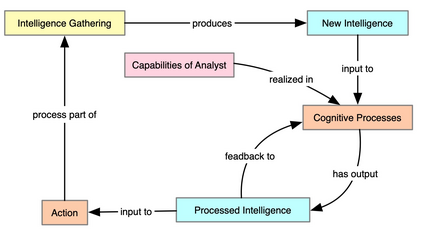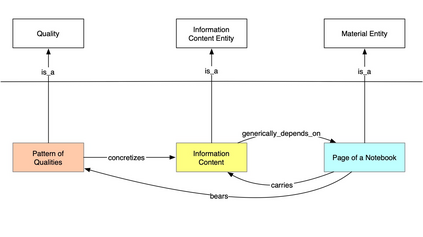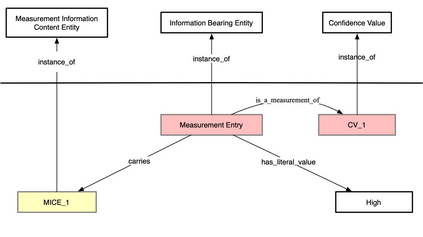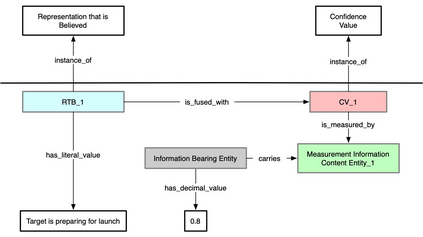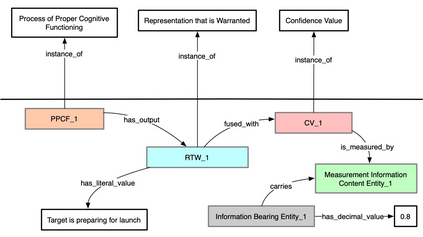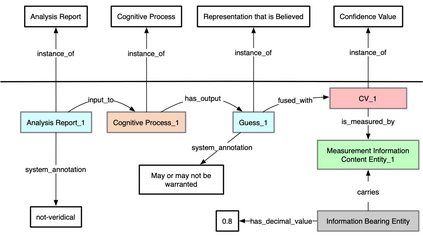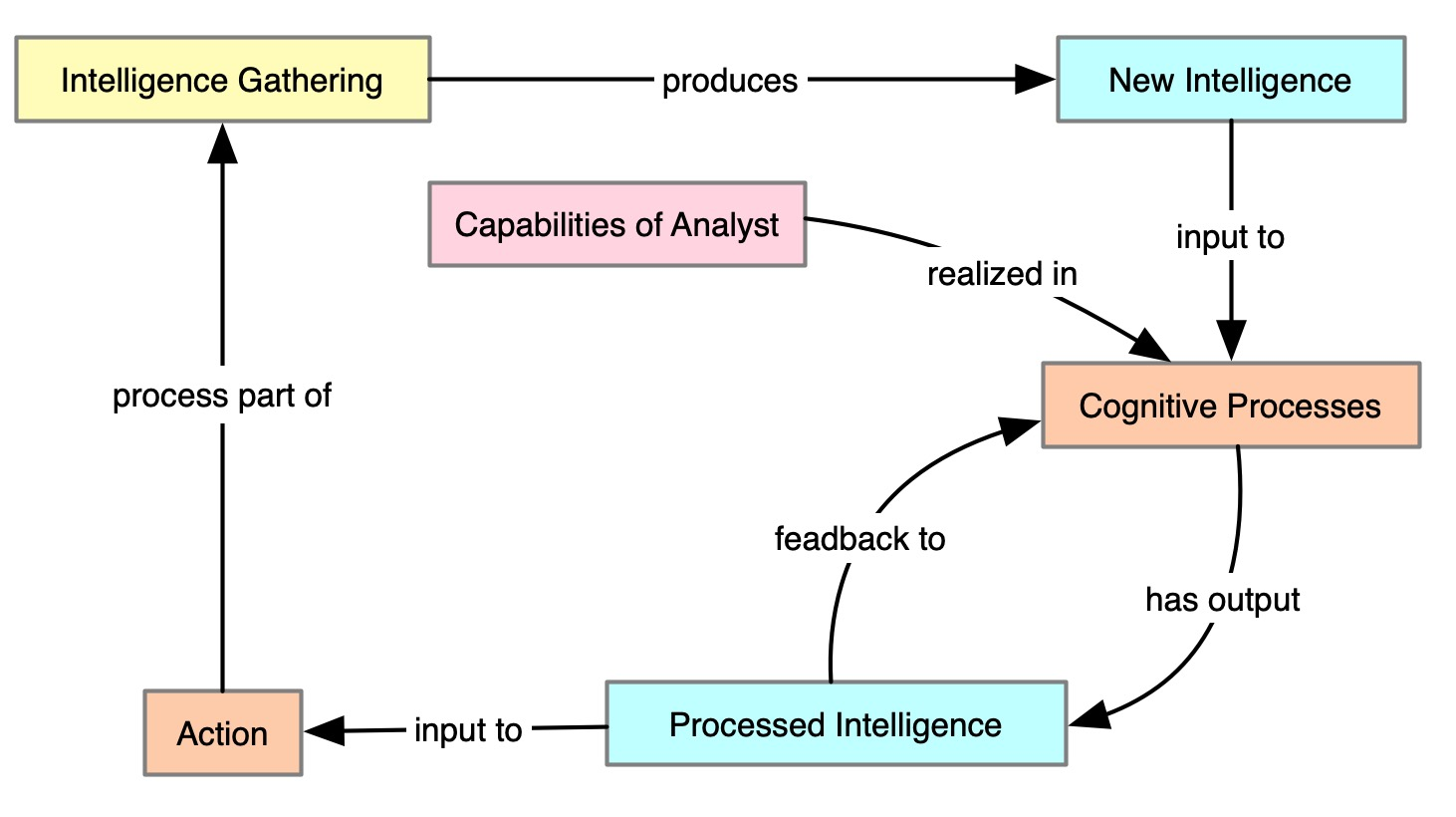Here we understand 'intelligence' as referring to items of knowledge collected for the sake of assessing and maintaining national security. The intelligence community (IC) of the United States (US) is a community of organizations that collaborate in collecting and processing intelligence for the US. The IC relies on human-machine-based analytic strategies that 1) access and integrate vast amounts of information from disparate sources, 2) continuously process this information, so that, 3) a maximally comprehensive understanding of world actors and their behaviors can be developed and updated. Herein we describe an approach to utilizing outcomes-based learning (OBL) to support these efforts that is based on an ontology of the cognitive processes performed by intelligence analysts. Of particular importance to the Cognitive Process Ontology is the class Representation that is Warranted. Such a representation is descriptive in nature and deserving of trust in its veridicality. The latter is because a Representation that is Warranted is always produced by a process that was vetted (or successfully designed) to reliably produce veridical representations. As such, Representations that are Warranted are what in other contexts we might refer to as 'items of knowledge'.
翻译:在这里,我们理解“情报”是指为评估和维护国家安全而收集的知识项目。美国情报界(IC)是一个合作为美国收集和处理情报的组织组成的团体。IC依靠基于人的机器分析战略,这些战略:(1) 获取和综合来自不同来源的大量信息,(2) 不断处理这一信息,以便,(3) 最充分地全面了解世界行为者及其行为,可以发展和更新。这里我们描述了一种利用基于成果的学习(OBL)的方法,以支持基于情报分析员所进行认知过程的理论的这些努力。对于认知过程的分类说明特别重要。这种说明具有说明性质,值得信任,因为这种说明总是通过经过审查(或成功地设计)以可靠地产生宗教陈述的过程来产生。因此,在其它情况下,我们所授权的表示是“知识”的组成部分。

